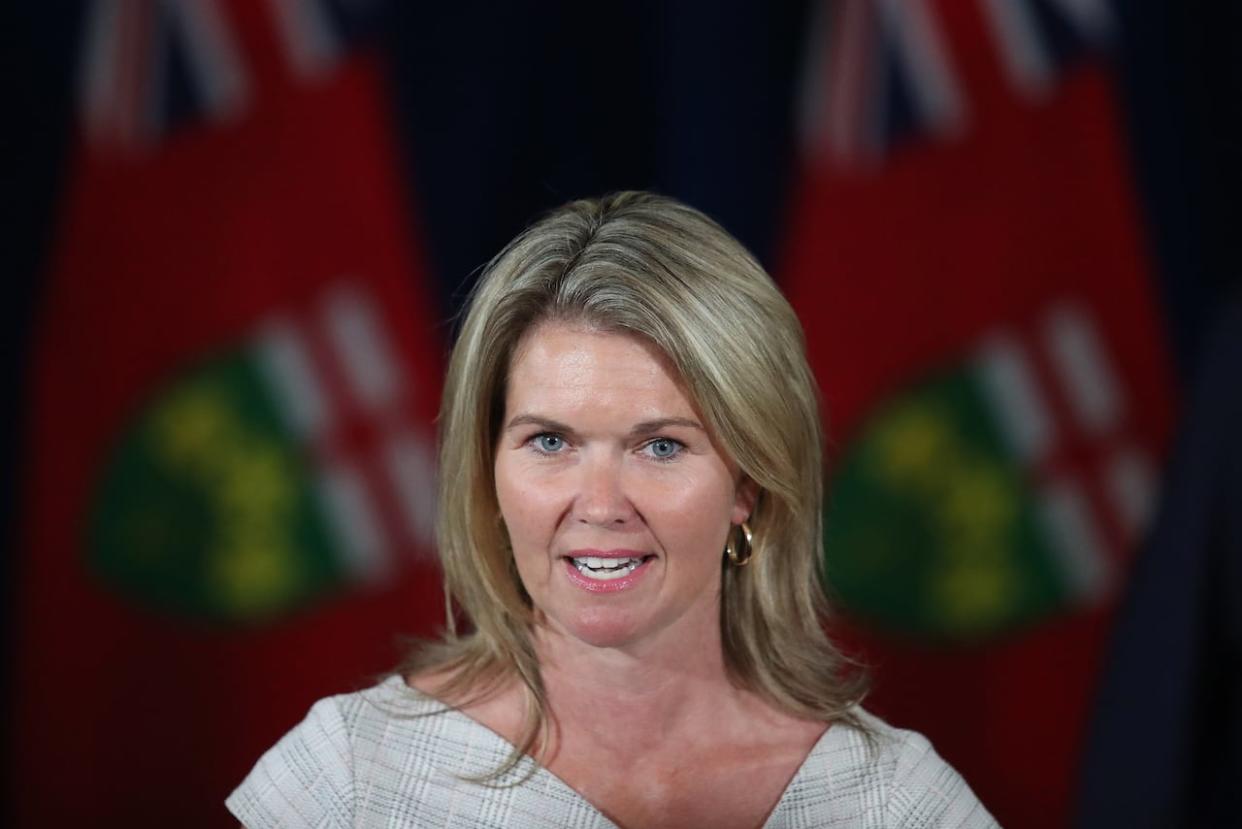Ontario boosts college and university funding by more than $1.2B, extends freeze on tuition fees

Ontario will provide more than $1.2 billion in new funding to colleges and universities to "stabilize" their finances and will extend a cap on tuition fees for in-province students, Minister of Colleges and Universities Jill Dunlop announced on Monday.
The financial aid package includes roughly $900 million for a stabilization fund and $167.4 million for capital repairs and equipment that will be delivered to colleges and universities over three years, according to a news release. The rest of the funding will go toward STEM program costs, research and innovation projects and initiatives to find efficiencies and savings, among other measures.
A tuition fee freeze first introduced in 2019 will be extended for Ontario students, although institutions will be allowed to increase tuition by up to five per cent for domestic, out-of-province students.
The government has also introduced a new bill that would require colleges and universities to have policies in place to address mental health and wellness, to combat racism and discrimination on campuses, and to increase transparency around fees.
"This is a broad range of measures that will offer much-needed stability to the post-secondary sector, and help keep costs down for students and their families," Dunlop said at a press conference.
"Our goal is to put students and their needs first, while continuing to produce the world-class graduates Ontario is known for."
Low provincial funding 'significant threat': report
The funding top-up comes after a government-commissioned report released in November said that low levels of provincial funding to colleges and universities combined with a tuition cut and freeze in 2019 are posing a "significant threat" to the financial sustainability of the sector.
The report said that funding for publicly assisted colleges for full-time domestic students is at a lower level than every other province, while the Council of Ontario Universities has said at least 10 universities are facing operating deficits.
The expert panel recommended a one-time, 10 per cent increase in per-student funding to colleges and universities followed by inflationary increases in subsequent years, as well as a five per cent increase in tuition along with an "equally generous" increase to student aid.
But today's new release says the tuition freeze will continue until at least 2026-27, the year of the next provincial election. Minister Dunlop is set to reveal details about the government's plan today.
Dunlop's announcement is set to come as post-secondary institutions have recently been saying their situation has grown even more dire following a federal announcement earlier this year that the number of visas for international undergraduate students will be slashed, with Ontario seeing its allotment cut in half.
A report last year by Higher Education Strategy Associates said Ontario's post-secondary funding is "abysmal" and raising spending to the average of the other nine provinces would require $7.1 billion per year in additional funding — much higher than the current level of operating funding at around $5 billion.
"No province has underfunded post-secondary education more, and no province's institutions have found so many ways to raise money from private sources," the strategy firm wrote.
"On a per-student basis, the province funds universities at 57 per cent of the average of the other nine provinces; on the college side it is a mere 44 per cent. It is tenth out of ten in every interprovincial comparison of financing."
The low levels of government funding have caused post-secondary institutions to increasingly turn to international student tuition fees, which are much higher than the rates for Canadian students.
Average university fees in 2020-21 were $7,938 for domestic undergraduate students and $40,525 for international undergraduate students, the auditor general said in a 2022 report.
The Smart Prosperity Institute, a University of Ottawa-based think tank, reported last year that Ontario universities nearly doubled international student enrolment between 2014 and 2015, and 2021 and 2022, and colleges more than tripled international enrolment.
Ontario's government-commissioned report on post-secondary finances said international student revenue is now fundamental to the sector's viability, greatly raising institutions' risk exposure.


